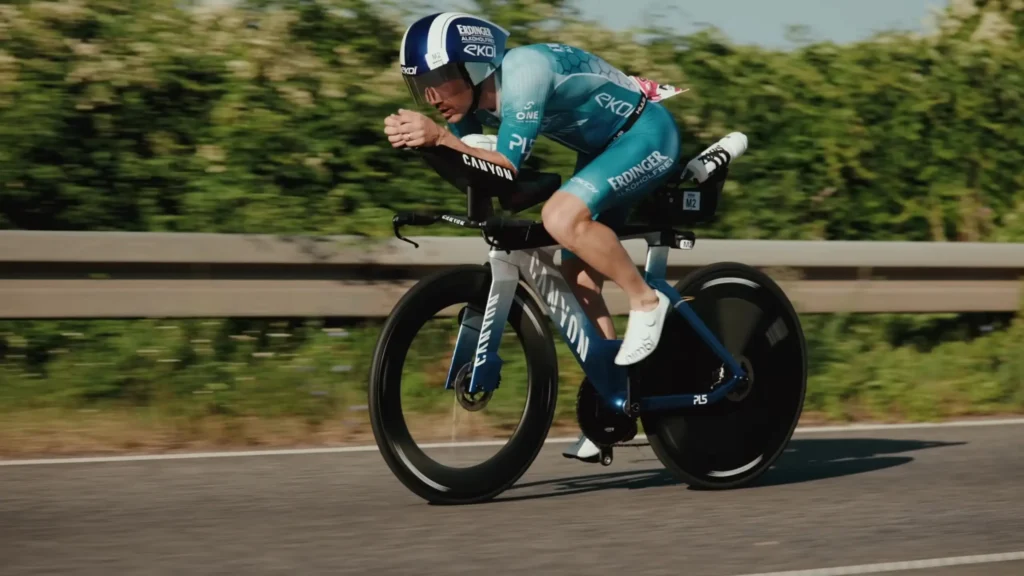
The Triathlete’s Guide to Protein-Powered Recovery: What 10 Years of Training Taught Me
Key Takeaways
- Aim for 1.6-2.2g of protein per kg of body weight daily (that’s 112-154g for a 70kg athlete)
- Time matters: Get 20-30g of protein within 30 minutes post-workout for optimal recovery
- Distribute throughout the day: Don’t save all your protein for dinner—spread it across meals
- Quality counts: Complete proteins (containing all essential amino acids) are your best bet
- Consistency beats perfection: Regular daily intake trumps sporadic high-protein days
Why Protein Became My Secret Weapon
Three years into my triathlon journey, I was stuck. My training was consistent, my volume was increasing, but my recovery felt like it was getting worse. I’d wake up sore, struggle through workouts, and frankly, I was getting frustrated with my plateau.
Then I met Sarah, a sports nutritionist who asked me a simple question: “How much protein are you eating?” Honestly, I had no idea. I was obsessing over carb timing and electrolyte strategies, but protein? It was an afterthought.
That conversation changed everything. Research shows that consuming protein pre- and/or post-workout induces a significant rise in muscle protein synthesis, but here’s what the studies don’t tell you—it’s not just about the immediate post-workout window. It’s about consistently giving your body the building blocks it needs, day after day.
The Science Behind the Magic
When you’re swimming, cycling, and running for hours on end, you’re essentially creating millions of tiny tears in your muscle fibers. This isn’t damage—it’s adaptation. But here’s the catch: without adequate protein, those tears don’t repair optimally. Instead of coming back stronger, you just stay broken down.
Recent research suggests endurance athletes need approximately 1.8g of protein per kg of body weight daily, with requirements potentially exceeding 2.0g during intense training periods. But let me translate this into real-world terms: if you weigh 70kg (154lbs), you need between 98-154g of protein daily. That’s significantly more than the general population recommendations of 0.8g/kg.
What really opened my eyes was learning that protein isn’t just about muscle repair. It’s supporting your immune system (which takes a beating during heavy training), helping with glycogen replenishment when combined with carbs, and even playing a role in hormone production that affects everything from sleep quality to mood.
Getting Your Timing Right
The infamous “anabolic window” isn’t as narrow as we once thought, but timing still matters. Here’s what I’ve learned works in practice:
Immediately post-workout: Within 20-30 minutes, I aim for 20-30g of high-quality protein. This usually means a protein shake because, honestly, after a 4-hour bike ride, chewing feels like work. Research supports this approach, showing that post-exercise protein intake helps offset muscle damage and promotes recovery.
Throughout the day: I’ve found that spreading protein across four meals works better than trying to cram it all into dinner. My typical day includes protein at breakfast (Greek yogurt or eggs), lunch (chicken or tofu), post-workout (protein shake), and dinner (fish or legumes).
Before bed: This was a game-changer I didn’t expect. Pre-sleep casein protein intake (30-40g) provides increases in overnight muscle protein synthesis and metabolic rate. I usually have cottage cheese or a casein shake about an hour before bed, especially after long training days.
Finding Your Protein Sweet Spot
Not all proteins are created equal, and your needs will vary based on your training phase, goals, and dietary preferences. Here’s what I’ve discovered through trial and error:
High-Quality Animal Sources:
Lean meats: Chicken breast, turkey, lean beef, and fish provide complete amino acid profiles. I aim for palm-sized portions at main meals.
Eggs: The gold standard. Two whole eggs provide about 12g of protein plus healthy fats for hormone production.
Greek yogurt: My go-to for convenience. A cup provides 20-25g of protein plus probiotics for gut health.
Cottage cheese: High in casein protein, perfect for that before-bed protein hit.
Plant-Based Champions:
Quinoa: One of the few plant proteins that’s complete on its own. I use it as a base for post-workout bowls.
Lentils and chickpeas: Cheap, versatile, and packed with protein. Great for meal prep.
Tofu and tempeh: Soy gets a bad rap, but it’s actually an excellent protein source for athletes.
Plant-based protein powders: Pea, hemp, or mixed plant proteins can be just as effective as whey.
The Real-World Application
Let me be honest—tracking protein felt obsessive at first. But after a few weeks, it became second nature. Here’s how I made it work:
Meal prep is your friend: I batch cook proteins on Sunday. Grilled chicken, baked tofu, hard-boiled eggs, and cooked lentils give me options throughout the week.
Protein powder isn’t cheating: Sometimes you need convenience. I keep protein powder in my gym bag, car, and office. It’s not ideal for every situation, but it’s better than missing your protein targets.
Listen to your body: During base training, I can get away with the lower end of the range. But during peak training or after particularly brutal sessions, I lean toward 2.0-2.2g/kg.
Don’t sacrifice carbs: This is crucial. Protein isn’t replacing carbohydrates—it’s working alongside them. I still prioritize carb intake for energy, but I make sure protein comes along for the ride.
What Changed When I Got It Right
The improvements weren’t immediate, but they were undeniable. Within a month of consistent protein intake, I noticed:
My legs felt fresher during brick workouts. Those dreaded run-offs after long bike sessions became manageable instead of torture sessions.
I was sleeping better. Turns out, adequate protein intake supports neurotransmitter production, which affects sleep quality.
My immune system was more resilient. I used to catch every bug going around during heavy training blocks. Now, I might feel a little run down, but I rarely get fully sick.
Most importantly, I was enjoying training again. When recovery is optimized, you can actually hit the intensities prescribed in your training plan instead of limping through workouts.
Common Mistakes I See (And Made Myself)
All-or-nothing thinking: Missing your protein target one day doesn’t ruin everything. Consistency over perfection, always.
Ignoring plant proteins: Even if you eat meat, incorporating plant proteins adds variety and different amino acid profiles.
Forgetting about digestion: If you’re having gut issues during training, look at your protein timing. I learned not to have a huge protein meal right before long sessions.
Neglecting total calories: Protein is important, but it’s still just one piece of the puzzle. Don’t get so focused on protein that you under-fuel overall.
The Bottom Line
Protein isn’t sexy. It doesn’t have the immediate impact of a good carb-loading strategy or the obvious benefits of proper hydration. But it’s the foundation that everything else is built on.
After years of experimenting, I’ve settled into a routine that works: 1.8-2.0g per kg of body weight daily, spread across four meals, with special attention to post-workout timing and pre-sleep intake. It’s not complicated, but it requires consistency.
The latest research continues to support higher protein intakes for endurance athletes, with recent studies showing that adequate protein can improve athletic performance through enhanced muscle strength and endurance. But beyond the performance benefits, proper protein intake just makes the whole triathlon experience more enjoyable.
You’ll recover better, sleep better, and show up to training sessions ready to actually train instead of just survive. And isn’t that the point?
Ready to Optimize Your Recovery?
Start tracking your protein intake for one week. Don’t change anything else—just become aware of how much you’re actually consuming. You might be surprised by what you discover.
What’s your biggest protein challenge? Are you struggling with timing, total intake, or finding sources that work for your dietary preferences? I’d love to hear about your experiences and what’s working (or not working) for you.
Additional Resources:
• Protein Supplementation Effects on Performance and Recovery (PMC)
• International Society of Sports Nutrition Position Stand on Protein
